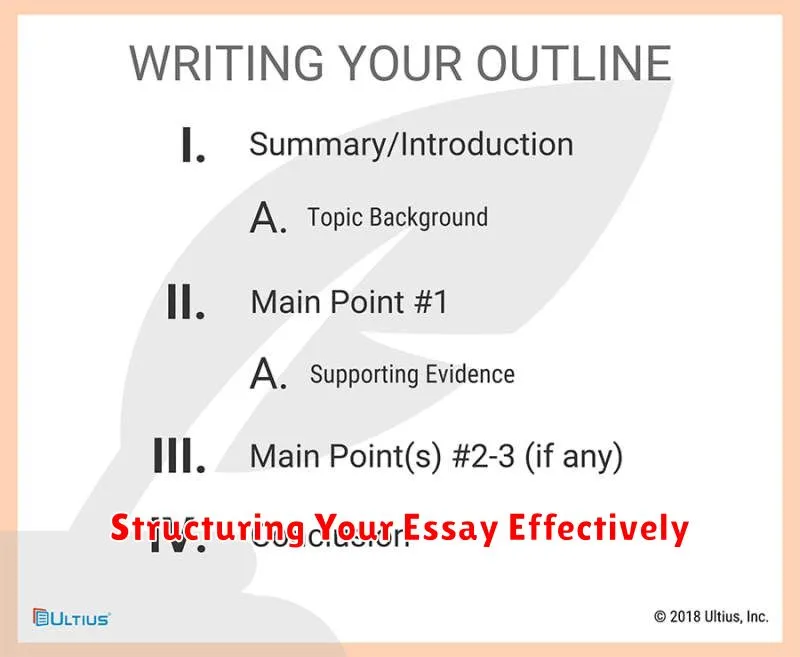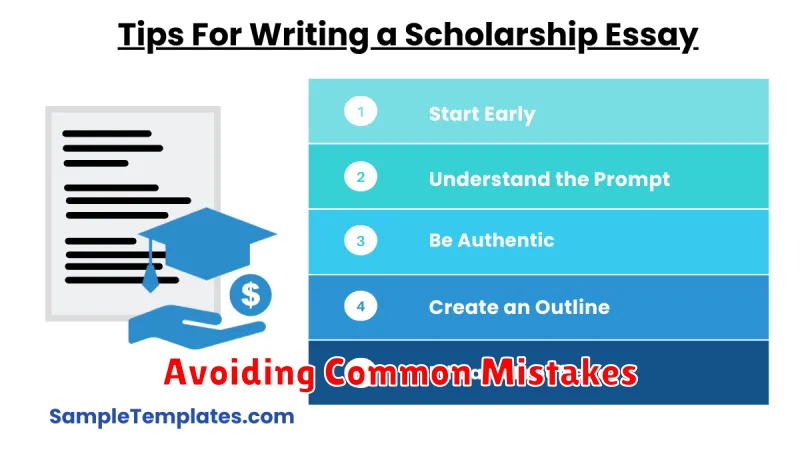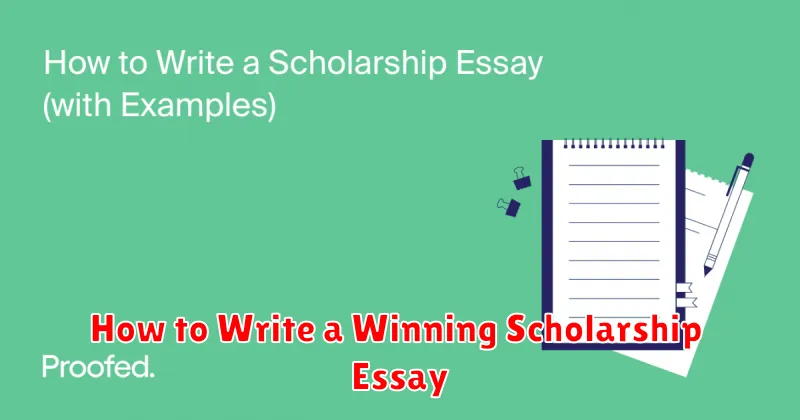Applying for scholarships can be a daunting task, but crafting a winning scholarship essay can significantly increase your chances of securing financial aid. This comprehensive guide provides invaluable insights into how to write a scholarship essay that stands out from the competition. We will explore scholarship essay examples, discuss common scholarship essay prompts, and offer proven strategies to create a compelling narrative that showcases your unique strengths and aspirations. Learn the essential elements of a successful scholarship essay, from brainstorming and outlining to writing and revising. Mastering the art of the scholarship essay is within your reach, and this guide will equip you with the tools you need to succeed.
A strong scholarship essay is more than just a summary of your achievements; it is an opportunity to connect with the selection committee on a personal level. This article will delve into the nuances of scholarship essay writing, including tips on how to effectively address the scholarship essay prompt, showcase your personality, and demonstrate your commitment to your academic and professional goals. Whether you’re applying for a merit-based scholarship, a need-based scholarship, or a scholarship essay competition, the principles outlined here will help you craft a compelling and persuasive scholarship essay. Discover how to avoid common scholarship essay mistakes and learn how to write an essay that truly resonates with the reader, ultimately increasing your odds of winning that coveted scholarship.
Understanding Essay Prompts
Before you even begin drafting your scholarship essay, it’s crucial to thoroughly understand the prompt.
A prompt is essentially a question or statement that guides your writing. It dictates the direction and scope of your essay. Misinterpreting the prompt can lead to a compelling essay that, unfortunately, misses the mark.
Deconstructing the Prompt
Carefully read the prompt multiple times. Identify the keywords and key phrases. Ask yourself:
- What is the central question being asked?
- What specific information or experiences are they looking for?
- Are there any specific requirements regarding length, format, or style?
Brainstorm ideas related to the prompt and how your experiences and skills align with the question. This will help you craft a focused and impactful response that directly addresses the prompt’s requirements.
Telling Your Personal Story
A compelling scholarship essay hinges on your ability to connect with the reader on a personal level. This means effectively telling your story in a way that showcases your unique qualities, experiences, and aspirations. Avoid generic statements and focus on specific anecdotes that demonstrate your character and how you’ve overcome challenges.
Authenticity is key. Don’t try to be someone you’re not. The selection committee wants to get to know the real you. Be honest and reflective about your experiences, and allow your personality to shine through in your writing.
Consider focusing on a pivotal moment or experience that significantly shaped you. This could be a personal triumph, a significant challenge, or a defining moment that clarified your goals. By focusing on a specific narrative, you can provide a more compelling and memorable account of who you are and what you stand for.
Remember, your story should align with the scholarship’s values and criteria. Highlight experiences and qualities that resonate with the organization’s mission and demonstrate why you are a deserving candidate.
Structuring Your Essay Effectively

A well-structured essay is crucial for conveying your message clearly and making a strong impression on the scholarship committee. A logical structure guides the reader through your thoughts and ensures your points are understood.
Begin with a compelling introduction that grabs the reader’s attention and clearly states your main argument or thesis. This sets the stage for the rest of your essay.
The body paragraphs should each focus on a single supporting point that contributes to your overall argument. Provide specific examples and evidence to back up your claims. Ensure a smooth transition between paragraphs to maintain a cohesive flow.
Finally, your conclusion should summarize your main points and restate your thesis in a new and insightful way. Leave a lasting impression on the reader by ending with a powerful thought or reflection.
Avoiding Common Mistakes

A compelling scholarship essay requires more than just good writing; it necessitates careful avoidance of common pitfalls that can weaken your application. Proofreading is paramount. Typos and grammatical errors detract from your credibility. Utilize grammar checkers and have a fresh set of eyes review your work.
Adhering to the prompt is crucial. Failing to address the specific question or sticking to the word limit demonstrates a lack of attention to detail. Generic essays are another major misstep. Avoid simply rehashing your resume or accomplishments. Instead, focus on specific experiences and connect them directly to the scholarship’s mission and your aspirations.
Authenticity is key. Don’t try to be someone you’re not. Write in your own voice and let your personality shine through. Lastly, avoid exaggeration or embellishment. Be truthful and genuine in your responses.
Using Real-Life Experiences
Scholarship committees seek genuine and relatable applicants. Sharing real-life experiences is a powerful way to make your essay stand out. Instead of simply listing achievements, focus on how specific events shaped you.
Reflect on experiences that demonstrate your resilience, perseverance, leadership, or passion. These experiences can range from overcoming personal challenges to participating in impactful community projects. The key is to connect these experiences to the scholarship’s purpose and your future goals.
Show, don’t tell. Instead of stating you’re a hard worker, narrate an instance where you demonstrated this trait. Describe the situation, your actions, and the outcome. This approach allows the reader to understand your qualities through demonstrable examples.
Be specific and detailed. Vague narratives lack impact. Include relevant details that paint a clear picture of the experience and its significance to you. Focus on the lessons learned and how those lessons have prepared you for future success.
Editing and Proofreading

After completing your essay, dedicate ample time to editing and proofreading. This crucial step ensures your essay is polished and error-free. Do not underestimate the importance of this stage. A well-written essay can be undermined by careless errors.
Begin by reviewing the overall structure and flow of your essay. Ensure your arguments are logical and support your central thesis. Transitions between paragraphs should be smooth and coherent.
Next, focus on sentence-level editing. Check for grammar, spelling, punctuation, and word choice. Reading your essay aloud can help identify awkward phrasing or repetitive sentences.
Finally, proofread carefully for any remaining errors. It can be helpful to have a fresh pair of eyes review your essay, as they may catch mistakes you’ve overlooked.
Getting Feedback from Mentors
After drafting your scholarship essay, seeking feedback is crucial for refinement. Mentors can provide invaluable insights and suggestions to strengthen your application. Identify individuals such as teachers, counselors, or professionals in your field who can offer constructive criticism.
Share your essay draft with your chosen mentors and clearly explain your goals for the feedback. Are you looking for help with clarity, grammar, or the overall impact of your essay? Providing clear direction helps mentors focus their feedback effectively.
Be receptive to the feedback you receive. Understand that suggestions are aimed at improving your essay and increasing your chances of success. Don’t be afraid to ask clarifying questions if anything is unclear. Carefully consider each point and revise your essay accordingly.
Express gratitude to your mentors for their time and effort. Their guidance is a valuable asset in your scholarship application journey. A simple thank you note can go a long way in maintaining a positive mentoring relationship.
Submitting Early
Submitting your scholarship essay early demonstrates proactive behavior and responsible time management, qualities highly valued by scholarship committees. It allows ample time for thorough proofreading and revisions, ensuring a polished final submission.
Furthermore, early submission avoids the risk of technical difficulties or unexpected delays that can occur close to deadlines. By submitting early, you present yourself as a prepared and organized candidate, giving a positive first impression to the reviewers.
Important Note: “Early” doesn’t necessarily mean weeks in advance. Aim to submit at least a few days before the deadline to provide a buffer for unforeseen circumstances.

